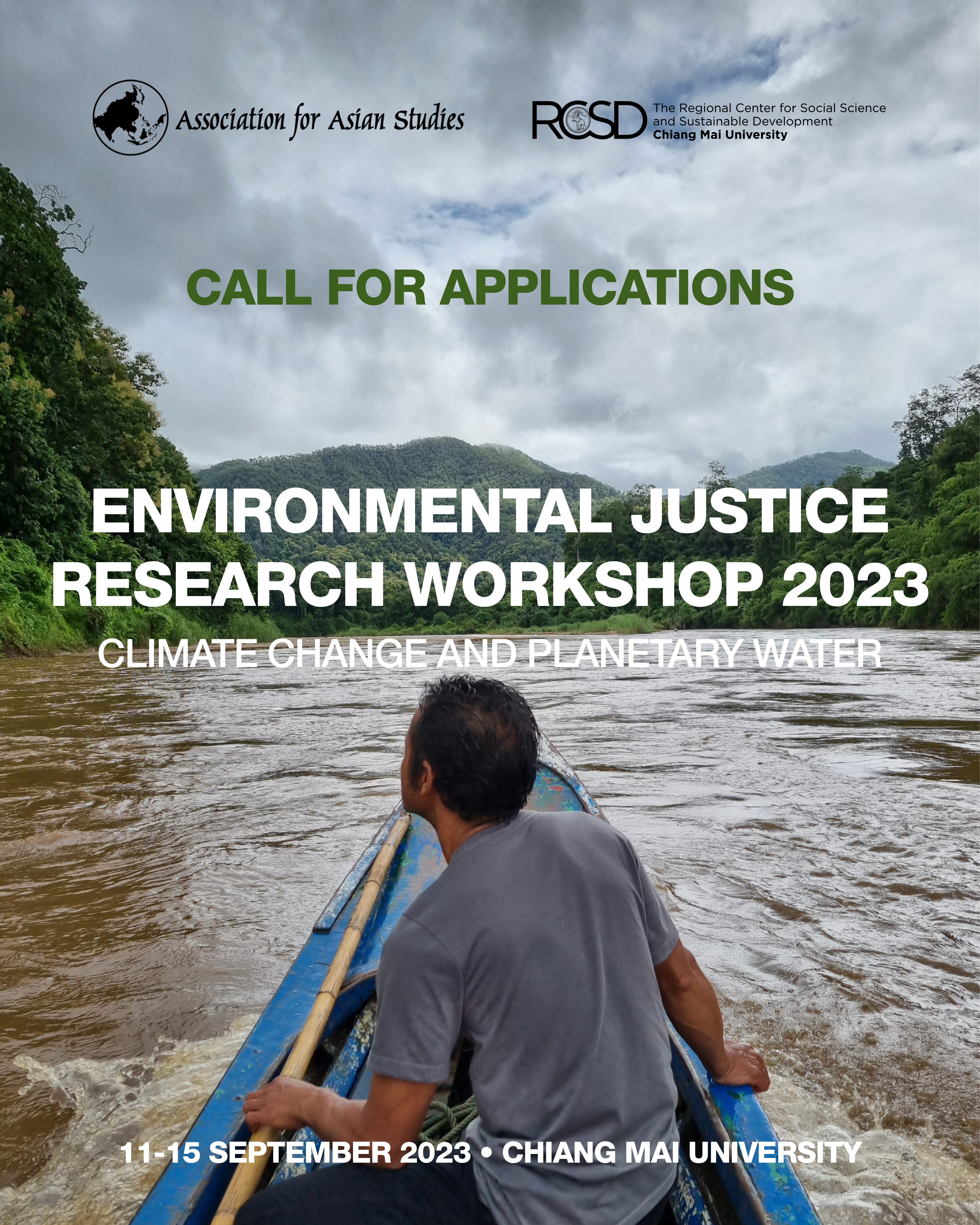AAS’ Cultivating the Humanities & Social Sciences Initiative (Chiang Mai Hub)
11 – 15 September 2023 (in-person at Chiang Mai University)
(with a successive online session on Saturday 21 October 2023)
Event Topic
Environmental Justice Research Workshop 2023: Climate Change and Planetary Water
Description
Continuing from the 2022 workshop, the “Environmental Justice Research Workshop 2023: Climate Change and Planetary Water” aims to develop research capacity among young and junior scholars and academic staff from under-represented areas and educational institutions in Southeast Asia, both mainland and archipelago. It provides a long-term platform for them to build professional networks and collaborate on future research projects. The workshop’s main theme is environmental justice, focusing on the problem of climate change and its solutions from humanities and social science perspectives. By reaching out to young scholars in Southeast Asia, the workshop fosters an inquiry mode and methodological practices suited for the region.
In this year, the workshop centers around the conceptual area of “planetary water” to facilitate programs and help participants develop innovative methodological approaches for their research. While much scholarly understanding in Asian area studies originates from a nation-state and land-based perspective, this frame of thinking may not suffice when addressing climate change and its consequences. A recent shift in ecological studies and environmental humanities towards water, particularly oceans, challenges this perspective. Melody Jule (2020), in “Wild Blue Media,” points out limitations when viewing the relationship between our bodily selves and the environment solely from a land-based perspective. Instead, she invites us to consider a fluid perspective. Steve Mentz (2022), in his article “A poetics of planetary water: The blue humanities after John Gillis,” further expands this concept to encompass all fluid elements of life and the earth, moving beyond natural water resources like oceans and rivers. He explores “the complex workings of water in our environment and imagines ways to change our relationships to it.” By utilizing Mentz’s “planetary water” as the workshop’s guiding concept, participants working on various ecological issues can be inspired and refine their inquiries related to climate change.
The workshop welcomes applications from young and junior scholars and academics, currently studying in postgraduate programs (master’s or PhD level) or working in higher-education institutions. It will take place in Chiang Mai, Thailand, spanning 4 days, with a plan for a continuing session afterwards for participants to meet again. The workshop’s expected outcomes include fostering networks and research collaborations among participants, with the possibility of developing conference presentations and publications within the Asian Studies academic circle.
Class Location
RCSD, Faculty of Social Sciences, Chiang Mai University
Field Locations
Water resource and ecosystem areas around Chiang Mai
Timeframe
- Monday 11 – Wednesday 13 September (in-class)
- Thursday 14 – Friday 15 September (in field)
Applicant Qualifications
- Be a junior academic (graduated no more than 5 years ago) from an academic institution in mainland or archipelago Southeast Asia
- Be a postgraduate student studying in an academic institution in mainland or archipelago Southeast Asia
Requirements for Application
- A short statement of purpose in joining the workshop
- An abstract on the research project that the applicants plan to conduct and write about (500 words)
- CV
Deadline for Application
- Applicants from outside of Thailand: 20 August 2023
- Applicants inside Thailand: 25 August 2023
Apply online for the workshop here
Expected Numbers
12 – 14 people
Workshop Outcomes
- Participants form small research groups (3-4 persons each) with a focus on what thematic issues or keywords they would like to engage with
- Participants can explain what panel topic they would like to form for AAS-in-Asia 2024 in Yogyakarta
- Networks and interactions developed among participants from within and outside the regions/hubs
Outputs from Workshop
- Individual abstracts for paper presentation which can be adjusted with others when forming panels

